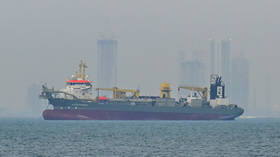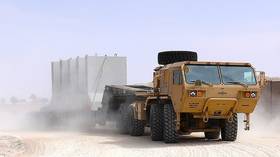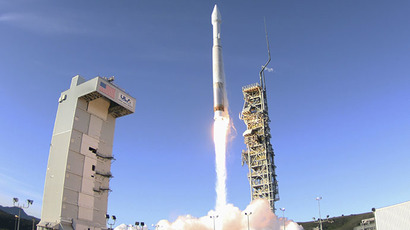Antares rocket will get new Russian RD-181 engines in $1bn deal
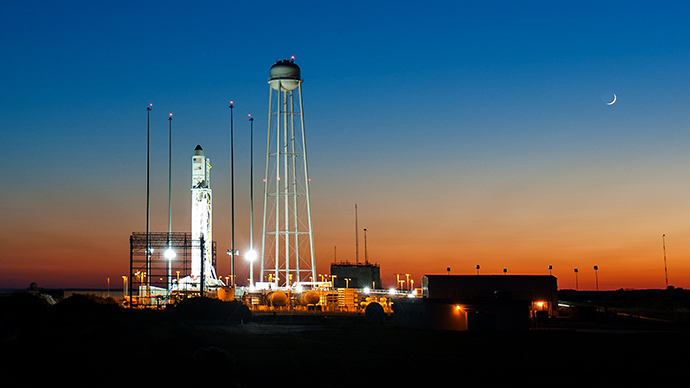
Russia’s Energomash has reportedly signed a contract with Orbital Sciences Corp. to supply 60 new built RD-181 engines for the Antares rocket instead of the modified Soviet units the company used until an ISS-bound rocket exploded on takeoff in October.
Orbital Sciences had no other choice but use Russian designed RD-181 engines since the Antares rocket was built around the twin-engine configuration of AJ-26 – a refurbished Soviet NK-33 engine initially produced for the USSR lunar program.
READ MORE: ISS-bound rocket explodes on takeoff from NASA facility in Virginia (PHOTOS, VIDEO)
Following an engine failure and subsequent explosion during the Antares take-off back in October, the company halted all launches struggling to find a replacement. The reliability of RD-181 and its whole family made the engine the best choice, Orbital’s vice president for space launch strategic development, Mark Pieczynski, told Aviation Week.
Russian Space Agency (Roscosmos) officials meanwhile confirmed the deal to Russian Izvestia Daily, saying that 20 rocket engines have so far been inked on paper, for a sum close to $1 billion.
“There is now a firm contract for 20 engines, the realization of which we have already begun, as the first two engines will have to be delivered in June next year. Plus there are two options in the contract, each for 20 pieces,” Izvestia cites the source as saying. The sum of the contract allegedly includes a number of services including, flight training, engine installation and testing.
The source also claimed that research and development of RD-181 was done specifically to the Orbital's needs, with the Angara rocket’s RD-191 engine serving as the starting point.
READ MORE: Russia test launches first newly designed ‘Angara’ space rocket
“While there is no such thing as a plug-and-play in this business, the RD-181 in its dual-engine configuration is about as close as you could possibly get to replacing the current twin AJ-26 engines in Antares, so it minimizes the redesign of the core,” Pieczynski told Aviation Week. “It allows us to keep the core nearly identical.”
Overall, Orbital Science Corp. agrees that Russia's engineering provides the best success options for American space program.
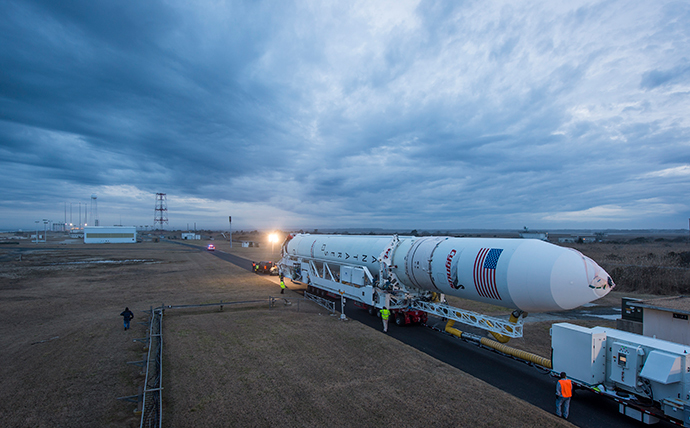
The RD-181 offered “the best combination of schedule availability, technical performance and cost” as compared to the “other possible options,” Ron Grabe, executive vice president and general manager of Orbital’s Launch Systems Group told Aviation Week. “But where it really stood out for us as the clear winner was with regard to its near-term availability.”
The Russian-made RD-180 currently powers another US rocket, the Atlas V, but tension between Russia and the United States over the unrest in Ukraine has led to a Congressional ban on the future purchases of Russian-made rocket engines, used to launch US national security satellites.
According to the 2015 National Defense Authorization Act, the US Secretary of Defense may issue a waiver if a “contract could not be obtained at a fair and reasonable price without the use of rocket engines, designed or manufactured in the Russian Federation,” even though under the new regulations, the secretary may not award or renew contracts for Russian-designed space launch rocket engines.
The document also says that a waiver for the purchase of Russian-made rocket engines can also be issued if it is “necessary for the national security interests of the United States.”
However Grabe said that legislation will not affect the deal to buy RD-181s from Energomash.
“We’ve coordinated with all relevant congressional committee staffs to keep them informed of our decision,” Grabe said. “Certainly the NDAA places future restrictions on the use of the Russian engines for national security space applications. Our application is in civil space.”




